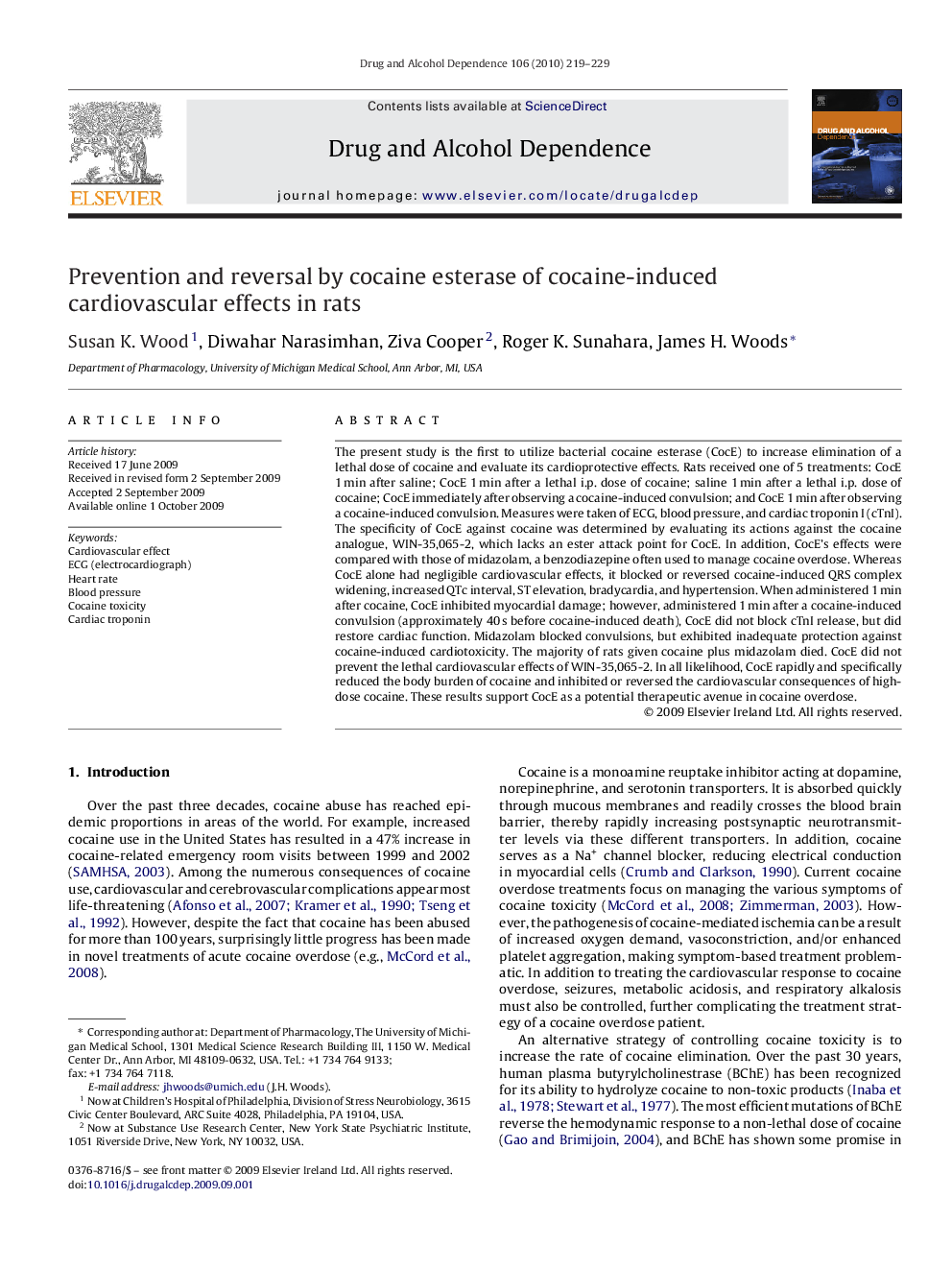| Article ID | Journal | Published Year | Pages | File Type |
|---|---|---|---|---|
| 1070457 | Drug and Alcohol Dependence | 2010 | 11 Pages |
The present study is the first to utilize bacterial cocaine esterase (CocE) to increase elimination of a lethal dose of cocaine and evaluate its cardioprotective effects. Rats received one of 5 treatments: CocE 1 min after saline; CocE 1 min after a lethal i.p. dose of cocaine; saline 1 min after a lethal i.p. dose of cocaine; CocE immediately after observing a cocaine-induced convulsion; and CocE 1 min after observing a cocaine-induced convulsion. Measures were taken of ECG, blood pressure, and cardiac troponin I (cTnI). The specificity of CocE against cocaine was determined by evaluating its actions against the cocaine analogue, WIN-35,065-2, which lacks an ester attack point for CocE. In addition, CocE's effects were compared with those of midazolam, a benzodiazepine often used to manage cocaine overdose. Whereas CocE alone had negligible cardiovascular effects, it blocked or reversed cocaine-induced QRS complex widening, increased QTc interval, ST elevation, bradycardia, and hypertension. When administered 1 min after cocaine, CocE inhibited myocardial damage; however, administered 1 min after a cocaine-induced convulsion (approximately 40 s before cocaine-induced death), CocE did not block cTnI release, but did restore cardiac function. Midazolam blocked convulsions, but exhibited inadequate protection against cocaine-induced cardiotoxicity. The majority of rats given cocaine plus midazolam died. CocE did not prevent the lethal cardiovascular effects of WIN-35,065-2. In all likelihood, CocE rapidly and specifically reduced the body burden of cocaine and inhibited or reversed the cardiovascular consequences of high-dose cocaine. These results support CocE as a potential therapeutic avenue in cocaine overdose.
